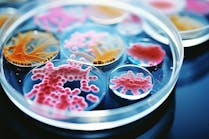New study findings could improve Candida auris (C. auris) treatment, according to an Association for Diagnostics & Laboratory Medicine (ADLM) release.
The study was published in ADLM’s Clinical Chemistry.
The team used genetic testing for their research. They “examined antifungal resistance genes in samples of C. auris isolated from 66 patients at the researchers’ institute. The samples underwent two types of genetic testing — whole-genome sequencing (WGS) and Sanger sequencing — which were used to identify each sample’s genetic fingerprint. The samples also underwent traditional susceptibility testing and were grown in the presence of seven major antifungal drugs.”
Additionally, “by comparing the genomic and susceptibility test results, the researchers confirmed that a number of different mutations in C. auris’s FKS1 gene cause resistance to echinocandins, which are the class of antifungal drugs that currently serve as the first line treatment for invasive C. auris infections. Specifically, the researchers showed that:
- The Ser639Tyr FKS1 mutation and Arg135Ser mutation are associated with resistance to the antifungal drugs micafungin and anidulafungin.
- The Met690Ile mutation is associated with resistance to caspofungin.”





